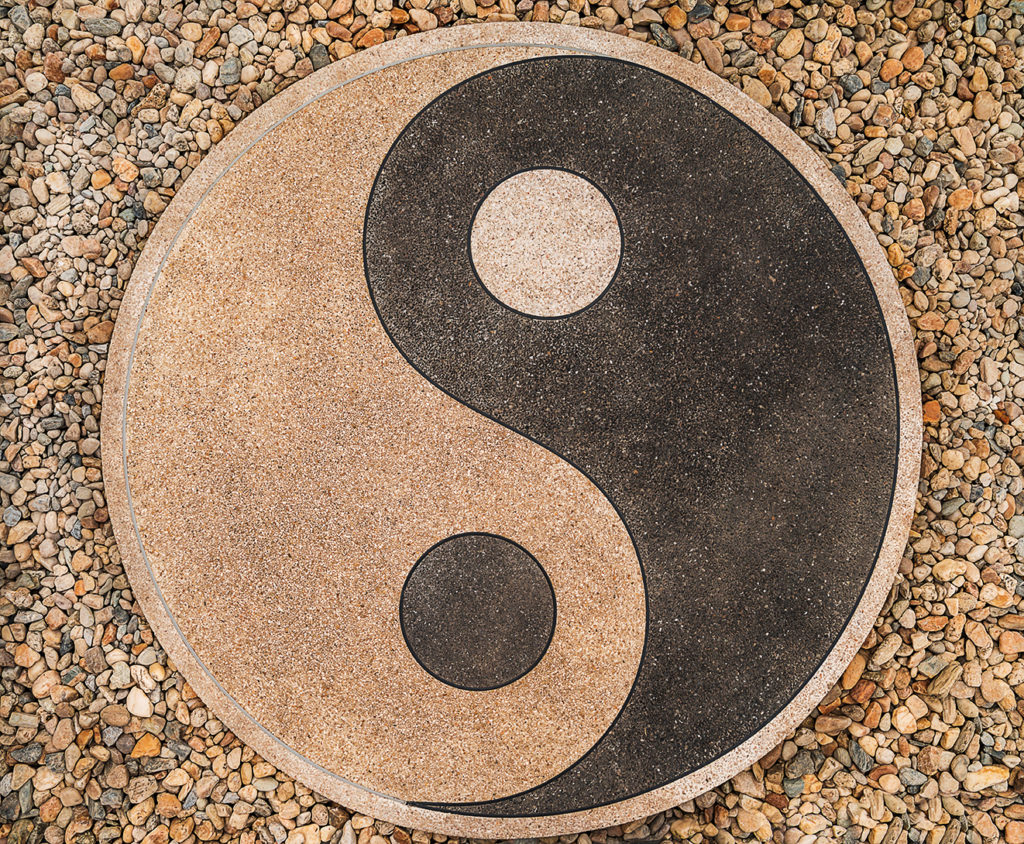Philosophy of Yin-Yang
Yin-Yang is a category of ancient Chinese philosophy. The earliest instance of its usage refers to a side that is facing the sun (Yang) or facing away from the sun (Yin) but it has since been adapted to refer to a wide range of opposite properties in the universe.
Yin-Yang is a category of ancient Chinese philosophy. The earliest instance of its usage refers to a side that is facing the sun (Yang) or facing away from the sun (Yin) but it has since been adapted to refer to a wide range of opposite properties in the universe. Such properties include: hot and cold, stationary and in motion, male and female, interior and exterior, and lower and upper. In general, anything that is bright, ascending, in motion, progressing, hyperactive, and functional are Yang. In contrast, the characteristics of darkness, descending, stillness, degeneration, hypoactive and organic are Yin.
The coexistence of Yin and Yang is governed by the law of unity of opposites. While Yin and Yang are effectively opposing forces, they are also mutually dependent on the other. Neither can exist singularly. Without “cold”, there would be no “hot.” Without “darkness”, there would be no “light.”
Within all objects and phenomena, the opposing forces are constantly subject to motion and change. For example, the “day” belongs to Yang while the “night” belongs to Yin. However, within the day (Yang), “morning” also belongs to Yang but the “afternoon” belongs to Yin. Within the night (Yin), the “evening” up until midnight is also Yin but the time “after midnight” is Yang.
According to TCM, the human life is a physiological process that is constantly changing and in motion. Typically, the waxing and waning of Yin and Yang are maintained within certain limits to reflect this physiological process as a dynamic equilibrium. However, this balance can be broken and as a result, ailments occur. For example numerous ailments can be described as the result of an imbalance owing to an excess of Yin, an excess of Yang, deficiency of Yin or a deficiency of Yang.
As a result, TCM treatments focus heavily on the restoration of Yin-Yang within the body. However, the chosen treatment method will depend on the patient and their specific ailment. For example, in the case of diarrhea which may be the result of ingesting large amounts of cold foods (which have a Yin constitution), acupuncture may be applied to expel the coldness in the body in order to bring down the level of Yin to match the Yang.

